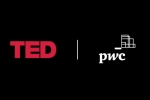Are institutions beyond repair?
Co-authored with Ingrid Carlson, Director, Global Strategy and Leadership, PwC. Original article published in the Global Solutions Journal Issue 8.
Fixing our society will require that we first fix our institutions
Institutions at every level, local to global, are facing a barrage of grievances against them unlike any time in recent history, both because of the severity of the accusations against them as well as the breadth of institutions involved: elections are broken and governments are corrupt; the police are brutal and racist; governments are unwilling and unable to protect their constituents from a virus; political systems stifle cultural differences and economic innovation; tax and legal codes favor the rich and influential, while punishing the poor; higher education is just for the elite and suppresses dissent; the economic system is deliberately designed to make the wealthy richer and destroy the middle class; student debt is crushing individuals ; the media is a deep pool of disinformation; big problems, like climate change and educating young children, serve as political talking points but nothing more.
Vilified or not, institutions at all levels of society, from those that make our towns and cities work to those that navigate critical global issues, are essential to our way of life. They provide the order and predictability that allow societies to operate and thrive. A society anchored by unreliable and inconsistent institutions — for instance, incoherent legal or policing systems or food, drug and airplane safety regimes — would be chaotic and unsustainable.
Yet now institutions are broadly stumbling. And as widely divergent as institutions appear to be, discussions about ways to fix them tend to be parsed and specific, focusing on what an individual institution can do to repair itself. That approach ignores a surprising and heterodox conclusion that emerges from a closer examination: at all levels of society, institutions – from multilaterals to national governments and local police or educational systems – are failing for the same two reasons. First, the world is fracturing, creating stress on institutions that were designed to operate in a more unified world. Second, the pace of technology (which bears some blame for global polarization and the inherent disparity at the heart of much institutional distress) is accelerating wildly and institutions are unable to keep up. To repair institutions, we need to focus on common solutions to these twin trends.
The burden of polarization
More than anything else, global and local fracturing is sapping the effectiveness of institutions. Rapidly spreading polarization has replaced the concept of collective responsibility with self-interest and transformed open discussion into arguments with immoveable points of view. On a grand stage, ideological fracturing was behind the US decisions between 2017 and 2020 to pull out of several international agreements and multilateral institutions, including the Iranian nuclear non-proliferation accord, the UN Human Rights Council, and the World Health Organization.
In local communities, polarization is hindering the ability to find meaningful solutions, whether it is making policing and local judicial systems more equitable or reforming education systems to become more adaptive and relevant for a digital future. In each instance there appears to be no common ground from which to begin conversations, even regarding their mandate, priorities or how to begin to address the problems, not because of the legitimacy of the argumentation but because of what the “other side” represents. As a result, essential reform is extremely difficult to progress as inequities and needs of local communities continue growing.
Technology’s role
Global fracturing is in part a by-product of technological transformation. In an information environment increasingly dominated by platforms, such as Facebook, Twitter, Google or Tik Tok, in which facts (and disinformation) travel around the world in seconds and good and bad activism emerge from 280 characters, the technological sophistication of institutions simply cannot keep up. As a prime minister’s aide told me:
“Platforms are increasingly marginalizing the basic role of government. For instance, the idea of doing a census seems such an old-fashioned tool for informing political and economic decisions. Google and its counterparts have better information in real time, every day. And if defense is increasingly a matter of protecting information and networks driving our real economy, who is better prepared to serve that role, us or the large platform companies?”
Increasingly, technology companies have gained global ubiquity and accumulated vast amounts of personal data to reshape every facet of personal life. Institutions that used to be crucial to safeguarding and driving progress in each of these areas are now more often than not bystanders or, worse, impediments to improvement. Most national communications agencies had their founding in the era of radio, for example, and simply have not been able to keep up with today’s media.
Fixing shortcomings
Institutions that hope to play a central, trusted role for their constituencies must find new ways of operating in a world that has changed. There are three essential steps that all institutions, regardless of level, must take immediately.
- Design specifically for a fractured world. Institutions must restyle themselves around the notion that people no longer share beliefs or fact bases. They must forge new mechanisms for finding common ground in an era that values polarization over collaboration, smoothing over differences and combating disinformation on social media, impairing their ability to provide services. These mechanisms include small committees, collaborative and rotating leadership, and consensus debates for airing evidence and viewpoints but not false facts. The goal is engagement with constituents to understand where the disagreements are and, perhaps more importantly, the few areas where agreement exists. Focus the institution’s work on the most important of those areas and where people can agree upon truth.
For example, while tensions are rising between nation states across a growing range of issues, they share a few important domains — climate, space, and the internet, among others — in which all countries have a common, existential interest. Multilaterals will be crucial in these areas as they require intense and broad focus to be addressed.
- Remember the core mission and innovate dramatically. US elementary and secondary school programs have expanded their realm so much that, in aggregate, only 60 percent of their budgets are spent on instruction. The Dean of the Blavatnik School of Government at Oxford University once stated that the World Health Organization, which has the budget of a large American hospital, allocates approximately 80% of its budget to critical things, not central to its core mission. This is not to say that the needs they are addressing do not matter, just that the broader the mandate any single institution assumes the harder it will be to reach consensus on how to adapt and the more difficult the adaptation challenge will become. Institutional simplicity is essential in an increasingly complex and ambiguous world, where change is difficult.
Instead of giving in to the pressure to expand their mandate, institutions should return to their roots and then innovate quickly. They must develop new creative approaches to interact with and serve constituents that emphasize their value and reemphasize their purpose, outpacing the ability of technology to weaken the institution’s relevance. This is not easy, as readjusting investments to focus on the core will entail harm to other interests being met by overextended institutions.
- Learn to lead differently. As a result of these two inherent challenges – polarization and technology acceleration – institutions are also facing another crisis: inadequate leaders. To successfully repair their institutions, leaders must embody and negotiate a set of apparent paradoxes. They must be capable of making decisions quickly and decisively but be humble enough to change course when they make mistakes. They must be sufficiently savvy about the world to understand its interconnectedness and political structures and create meaningful local impact. They must be good at both thinking strategically and executing flawlessly. They must be traditional and innovative – and fluent in competing in a technology-driven world while ensuring that individuals benefit but are not harmed by technology.
In the noise of the COVID-19 pandemic, a handful of exemplars of paradoxical leadership stood out. Pfizer chair and CEO Albert Bourla combined respect for tradition and innovation by rolling out a new R&D approach that used artificial intelligence to accelerate drug development and testing, simultaneously developed candidate vaccines and built manufacturing capacity well ahead of approval, while surpassing the standards for impartial and accurate drug development. This allowed Pfizer, working with BioNTech, to produce the first approved COVID-19 vaccine in the U.S. and get it to the market at a speed we have rarely seen. And among global leaders, New Zealand’s prime minister Jacinda Ardern deftly managed the tension between strategy and execution in virtually sidestepping the pandemic.
The task of these leaders is not an envious one. They need to dramatically rethink and recreate their institutions to address increasingly complex and ambiguous problems, with constituents who do not agree, a continuously changing technology environment and growing distrust of the organizations for which they have responsibility. It is in such times that history shows leaders emerge. Here is hoping they do now, before it is too late, and the world gives up on its institutions. History shows only bad things happen when that occurs.
Sources:
1. Aaron Smith, Jordan Campbell, Christian Barnard, and Jude Schwalbach. “K-12 education spending spotlight: An in-depth look at school finance data and trend,” 30 September 2021, Reason Foundation, https://reason.org/commentary/k-12-education-spending-spotlight/
2. Global Solutions Summit panel, “What can the G20 do: Multilateral Cooperation in a New Global Order.” 2021, https://www.global-solutions-initiative.org/video/what-can-the-g20-do-multilateral-cooperation-in-a-new-global-order/
3. Pfizer, “How a novel ‘incubation sandbox’ helped speed up data analysis in Pfizer’s COVID-19 vaccine trials,” https://www.pfizer.com/news/articles/how_a_novel_incubation_sandbox_helped_speed_up_data_analysis_in_pfizer_s_covid_19_vaccine_trial
4. Pfizer, “Shot of a lifetime: How two Pfizer manufacturing plants upscaled to produce the COVID-19 vaccine in record time,” https://www.pfizer.com/news/articles/shot_of_a_lifetime_how_two_pfizer_manufacturing_plants_upscaled_to_produce_the_covid_19_vaccine_in_record_time
Recoupling shareholders, stakeholders and society
Authors:
Blair Sheppard, Global Leader, Strategy and Leadership, PwC
Ingrid Carlson, Director, Global Strategy and Leadership, PwC
The Global Solutions Initiative (GSI) is a global collaborative enterprise to envision, propose and evaluate policy responses to major global problems, addressed by the G20, through ongoing exchange and dialogue with the Think20 (T20) engagement group. The GSI is a stepping stone to the T20 Summits and supports various other G20 groups. The policy recommendations and strategic visions are generated through a disciplined research program by leading research organizations, elaborated in policy dialogues between researchers, policymakers, business leaders and civil society representatives.
Contact us

Colm Kelly
Global Corporate Sustainability Leader, PricewaterhouseCoopers International Limited

Global Corporate Sustainability Managing Director, PricewaterhouseCoopers International Limited













